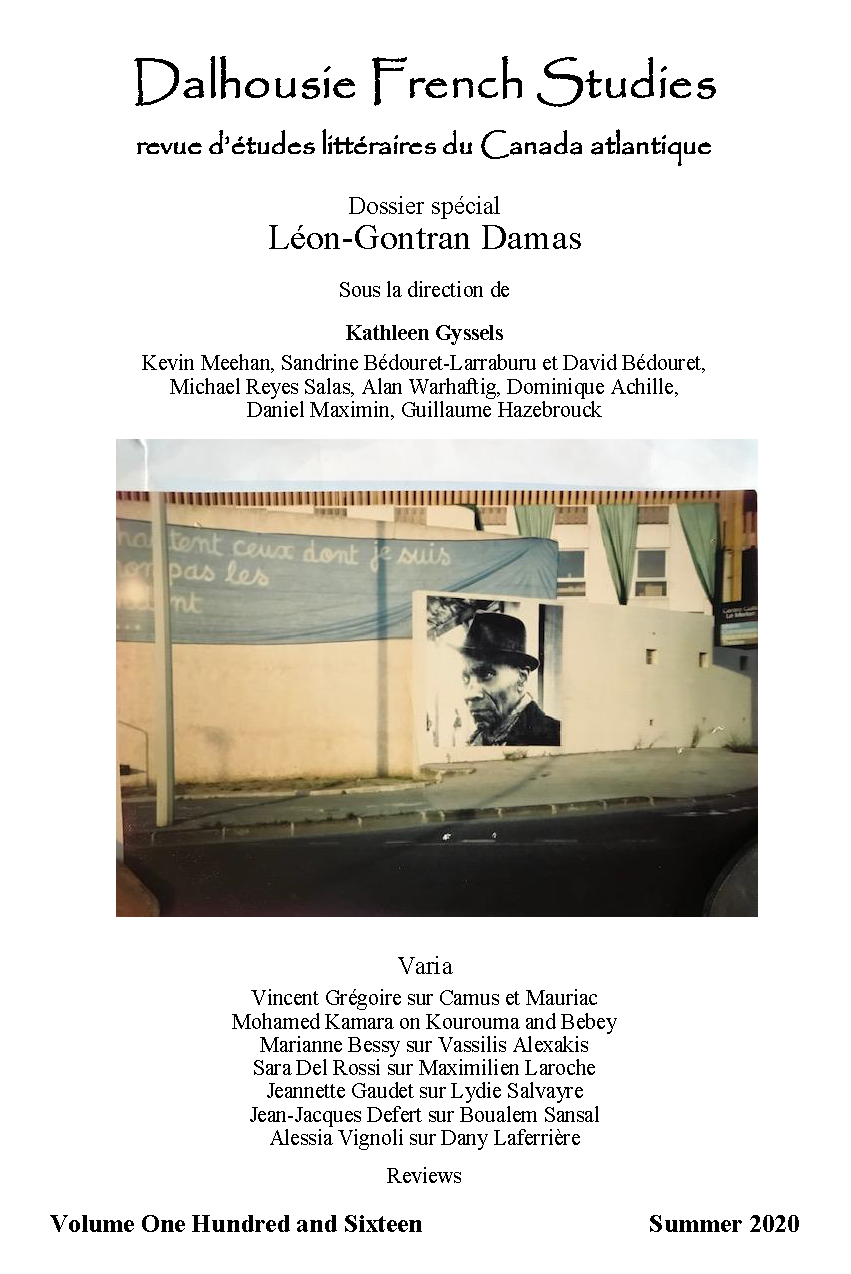His Master's Voice: avons-nous écouté Damas?
Résumé
Comme l‘ont bien vu de nombreux critiques, la musicalité de la poésie damassienne serait l‘expression du rythme « nègre » et de ceux de sa génération, il aurait été le plus jazzy. La poésie de Damas mérite mieux : il suffit de l‘écouter mise en musiques par Pigments & The Clarinet Choir, pour comprendre combien elle transcende l‘Afrique noire et la Caraïbe car à travers la valeur ajoutée d‘une interprétation instrumentale en plus d‘une récitation poétique rare, ce sont les drames de l‘individu déraciné et démotivé par un corps social et un entourage inamical. Drame de la solitude et drame de l‘incompréhension, espérance de réconciliation et rage contre l‘impasse de la question raciale dans une France prétendument multiculturelle se relaient. Dans trois extraits de leur projet décapant, Pigments & The Clarinet Choir offrent une partition époustouflante du « Master‘s Voice ».
As many critics have seen, the musicality of Damassian poetry would be the expression of “negro” rhythm, and of the poets of his generation, he would have been the most jazzy. The poetry of Damas deserves better: it is enough to listen to it set to music by Pigments - The Clarinet Choir, to understand how it transcends Black Africa and the Caribbean, because, through the added value of an instrumental interpretation and a rare poetic recitation, these are the dramas of the individual uprooted and demotivated by a social body and an hostile environment. Drama of loneliness and drama of incomprehension, hope for reconciliation and rage against the impasse of the racial question in a supposedly multicultural France take turns. In three excerpts from their amazing project, Pigments - The Clarinet Choir offer a breathtaking score of the “Master‘s Voice”.


